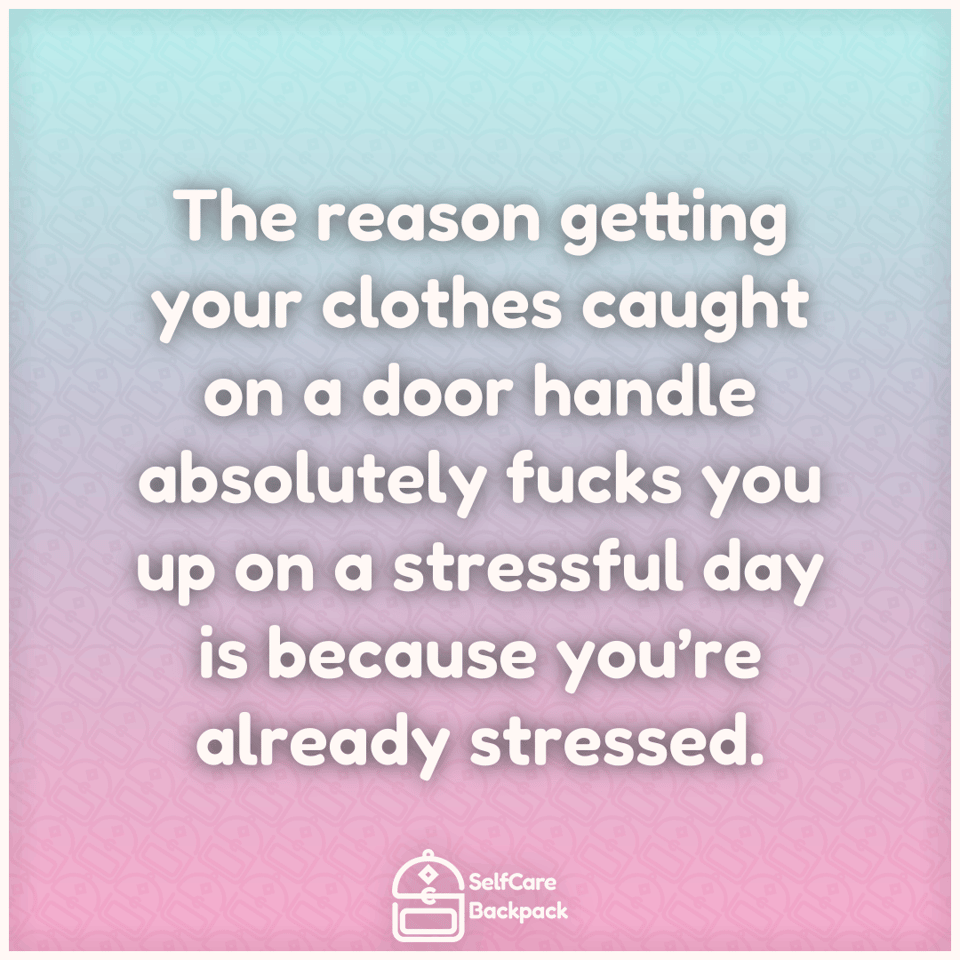Free peek: Resilience requires boundaries
Every couple of months I remove the paywall from a post to give my readers a peek behind the curtain, to see the kind of writing you can get weekly if you choose to upgrade to a paid subscription. This newsletter is entirely reader supported, and your readership (whether free or paid) means the world to me.
I’ve said it before and I’ll say it again: boundaries are an integral part of resilience.
I think people see emotional and mental resilience still as ‘nothing touches me’, or ‘get through whatever bullshit life throws at you’. It’s not the ability to get through life with nothing touching you. Part of it is about letting some of life’s little things slide off you, but that looks different for everyone, and it changes as life happens.
The reason getting your clothes caught on a door handle absolutely fucks you up on a stressful day is because you’re already stressed. It’s not that you’re not resilient, it’s that you’re using your resilience for bigger things, so you have no energy to let a hooked door handle that stops your momentum slide off you. (It’s also a ‘safe’ thing to vent your feelings on, but that’s a different thing).

We can talk about being ‘thick skinned’ or ‘thin skinned’, but this is going to be so individual. Often, I find people talking about needing to be ‘thick skinned’ are actually saying:
We’re not going to examine our behaviour and change it or have any empathy at all, you need to toughen up. See also: no, we’re going to continue to be racist/sexist/homophobic/etc and you need to deal because we don’t mean to be bigoted, and intent is magic. See also: microaggressions, what are they? You’re just being sensitive.
I had it much worse and therefore you need to also suffer in order to earn the right ot be here (this is related to the above, but not necessarily)
And we can talk about how in certain roles there’s going to be a certain level of nonsense you have to deal with and that’s part of the job (long hours, dealing with members of the public, in my case, hearing some traumatic stuff), but we can still have boundaries within that work and role in order to protect ourselves and enable us to deal with the necessary nonsense.
Resilience is really about giving yourself the space and care you need to be able to weather storms, but also recover from bad times in healthy ways.
Boundaries are a fundamental part of this. There are things you need to protect in order to keep yourself resilient and functioning. Some examples:
You saying that you can’t take on more work during a busy time is setting boundaries and ensuring you can cope with a busy time in a healthy way, so you don’t burn out.
Making sure you actually take time out to grieve is allowing yourself to feel and do what you need to do. This means you can come back to equilibrium (or a new equilibrium, because grief changes you, and that in itself is a journey). This will mean setting boundaries, maybe even with yourself.
Taking a break after an intense but expected meeting or interaction so you can ground yourself and take a breath is a boundary and means you’re not carrying too much throughout the day. You can then do deeper work to recover at a later time if needed.
These are ways to be resilient. It’s never about pushing through stuff and ignoring your feelings. It’s about feeling them in appropriate and healthy ways, and coping with them similarly.
There are times when you feel you need to build your resilience, that is totally a valid thing, and there are ways you can do that.
Spoiler: it’s self care.
Building a support network (because resilience sometimes means getting help from people)
Figuring out your warning signs and how to do self care when you’re struggling (we plan for our bad days on your good days)
Try to find time for yourself and spend it well. Learn what relaxation looks and feels like for you. Find things that you enjoy doing (gardening? Crafting? Exercise? Watching films? Video games?) and spend time doing them.
Try not to do that thing where you’re too tired/stressed/whatever to be productive, but feel guilty about spending time doing ‘nothing’, and so you spend your time doing nothing productive or fun/relaxing, and feel guilty instead (I’m calling myself out specifically here).
And a final reminder: you can’t resilience or self care your way out of a shitty situation. Sometimes the problem isn’t you, it’s the environment. Maybe you need
There’s more here from Mind: https://www.mind.org.uk/information-support/types-of-mental-health-problems/stress/managing-stress-and-building-resilience/
Add a comment: